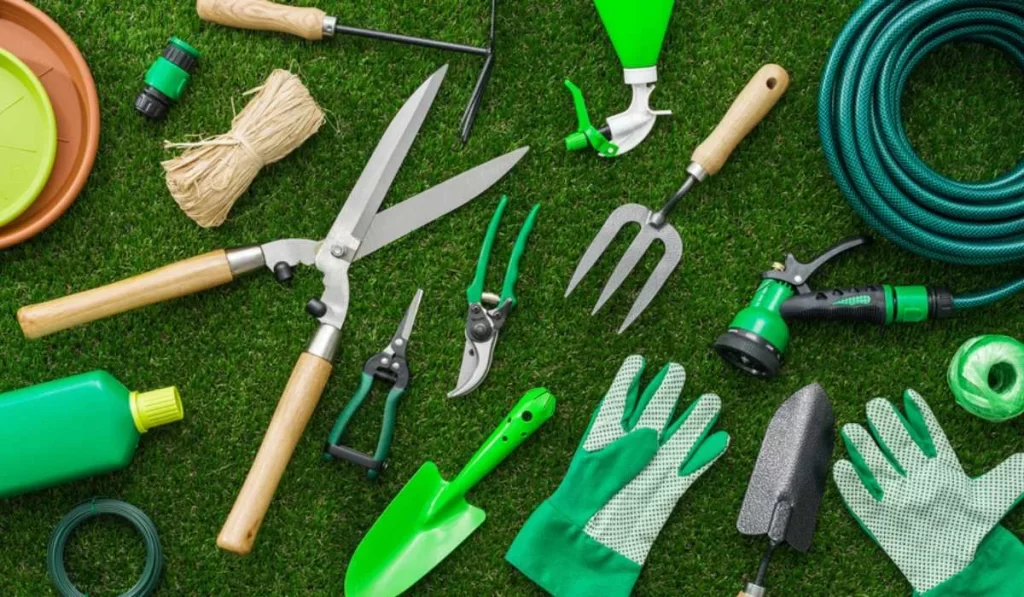Essential Tools Every Gardener Should Have

No matter your gardening expertise or experience level, these handy tools will make gardening simpler for all of you.
Garden carts or wheelbarrows make transporting soil, compost, mulch and other heavy materials much simpler from point A to B.
Hand trowels are indispensable tools for digging holes, planting seeds and loosening hard-to-pull weeds. Look for one with padded grips or shock absorption technology for maximum comfort when using.
Hand Trowel
Hand trowels can be essential tools when it comes to repotting indoor plants or gardening outdoors. Choose a durable stainless steel model for repeated use.
An adaptable head design enables you to dig, transplant and scoop with ease. Select a model with serrated edges and an integrated depth gauge for added precision and efficiency.
Garden forks are indispensable gardening tools that should always be on hand. Similar to pitchforks, garden forks can be used for digging out roots and loosening soil before weed removal and mixing in compost or other amendments to the soil. A sturdy stainless steel model with square tines that won’t bend when encountering large rocks or roots would be best.
Hand Fork
Hand forks can be an indispensable asset when working in tight spaces and loosening soil, particularly clay soils or compacted areas where troweling would be challenging. A hand fork’s versatility also makes it ideal for working in clay-rich conditions where troweling would otherwise be impractical.
These forks also make great tools when transplanting perennials, unlike their spade counterparts which are limited in their ability to loosen entire root crowns and move them without damaging their roots.
Search Roger’s Gardens’ selection to find an effective fork that satisfies both criteria! You will be sure to find something perfect for your garden here!
Long-Handled Digging Shovel
Long-handled digging shovels are among the best tools for anyone, particularly if they suffer from back problems. Not only will you avoid having to bend as often, but this tool can also increase strength.
Choose a shovel with a straight blade as this type is superior for digging holes and trenches than its more curved-bladed garden spade counterpart. Furthermore, its straight edge allows it to easily tackle thick roots or sticks more effectively than a digging fork would do.
Long-handled shovels can also come in handy when transplanting plants into new soil or transporting mulch or compost, as well as digging up perennials for division or relocation purposes.
Digging Fork
Digging forks can be indispensable tools when faced with heavy clay or sandy soil that is challenging to dig through with a garden spade, turning compost or loosening weeds.
Opt for a steel digging fork rather than metal-clad plastic ones as these tend to break under pressure. Furthermore, make sure the head-to-handle attachment is strong by choosing one either riveted into place or welded directly to the shaft – welding will provide greater security against breaking.
Border forks feature smaller tines and are lighter for tight spaces such as weeding and gardening. A pitchfork works similarly but can be used for larger jobs like moving bales of hay and collecting leaves.
Pruning Shears
If you’re pruning shrubbery, trimming greenery in your garden or trimming houseplants, sharp shears will come in handy. Look for ones that can easily be cleaned – this can extend their lifespan as well as prevent plant diseases from spreading through dirty tools.
There are various kinds of shears on the market, including bypass blades that cut past each other rather than meeting when cutting, and anvil blades which crush stems to reduce size. No matter if it’s creating hedges from scratch or simply trimming flowers – having the appropriate shears makes gardening much more rewarding!
Garden Gloves
Gardening can be both rewarding and relaxing, yet challenging on your hands. Along with cuts, scrapes and thorns, working with soil can introduce bacteria and fungi that cause diseases like rose gardener’s sporotrichosis (a painful rash caused by exposure to contaminated plant materials).
Garden gloves provide protection from dirt while adding dexterity, making gardening tasks much simpler. Choose between light, medium or heavy duty categories depending on the intensity of your gardening tasks – these gloves have even earned themselves the BBC Gardeners’ World Magazine Best Buy title due to being both comfortable and well fitting – not waterproof either – just quick drying times after washing machine use!
Watering Can or Hose
Watering cans may be adequate for smaller gardens, but hoses are essential in larger ones. Their flexibility enables you to reach plants that may otherwise be hard to access more quickly and more easily.
Watering nozzles come equipped with multiple modes for precise application. Free-flow spouts work great for indoor and container plants, while rose spouts (similar to sprinklers) make watering seeds or seedlings in the garden simple. Some models even allow users to easily switch between spray and pour modes when desired.
Some hoses feature emitters to deliver water directly to landscape beds without overspray or runoff onto paved surfaces – perfect for vegetable and fruit gardens, orchards and ornamental and shade trees.







